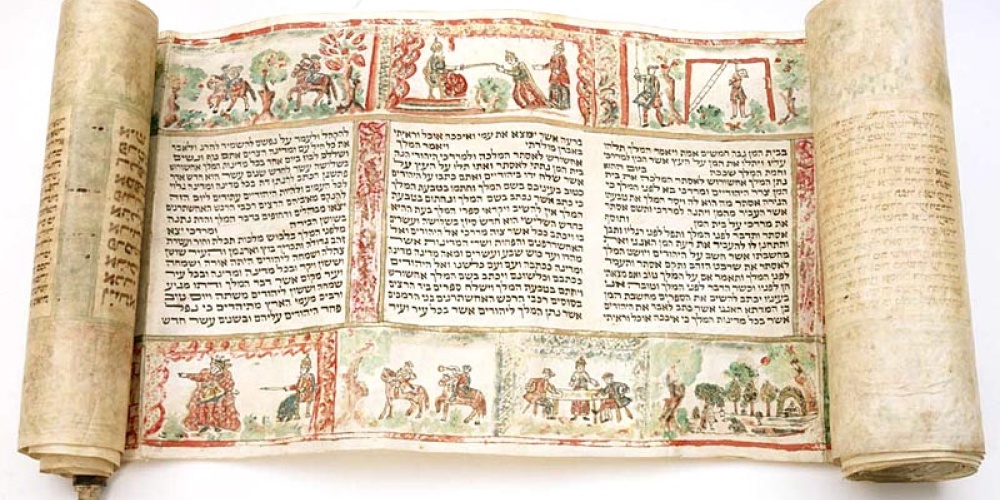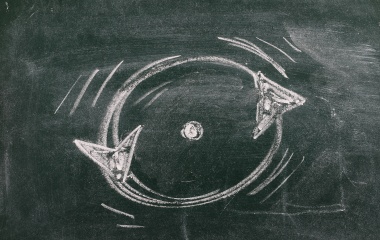
"These days should be remembered and kept throughout every generation, every family, every province, and every city; and that these days of Purim should not fail from among the Jews, nor the memorial of them perish from their seed" (Esther 9:28). In a rather astonishing teaching, Rabbi Yossi the son of Chaninah explains that the expression "all families" teaches that even "the families of priests and Levites desist from their Temple service [to] come hear the reading of the Megillah" (Megillah 3a).
As Tosafot (s.v. mevatlin) notes, with one able to read the Megillah all day, there is no reason the Temple service can't be performed in its proper time and, at its conclusion, all can go hear the Megillah. The Tosafists explain that reading the Megillah with the entire community present enhances the mitzvah and thus, all must stop whatever they may be doing to come together for Megillah reading. When one considers that, according to some opinions, "and the one sheep should be brought [as a sacrifice] in the morning, and the second sheep in the afternoon" (Shemot 29:39) is the most important verse of the Bible (see the introduction to the Ein Yaakov, the classic commentary to the Talmudic Aggadot], this is quite a remarkable statement. As important as the Temple service may be, it can wait while we join together to hear the Megillah[1].
The Gemara then follows with a long discussion analyzing the priorities that one must consider when faced with two concurrent obligations. Based on the fact that Megillah reading overrides the sacrificial order, "the house of Rebbe relied on this, [and] they cancelled the study of Torah and came to hear the Megillah". That the house of Rebbe based their teaching on the Megillah superceding sacrifices and all the more so learning Torah, implies that the Temple service is more important than the study of Torah, an inference the Talmud finds most difficult—Torah study being one of the supreme values of Judaism. The Gemara's answer is illuminating, distinguishing between private and public Torah study. The Temple service may take precedence over private study; however, the study and teaching of Torah with and to others takes precedence over the Temple ritual[2].
Teaching Torah to others is an act of great kindness[3], and is both a mitzvah between man and G-d and man and man. Private Torah study lacks this dimension and is thus of lesser importance—and the Temple service conducted on behalf of the Jewish people as a whole must take precedence. Yet, honouring those who study Torah is of greater significance than the study itself—explaining why certain mourning practices normally forbidden on festive days would be allowed for a Torah scholar, even one who does not teach others.
The Gemara continues by teaching that, if one has to choose between a going to a funeral (or a wedding) and Torah study, attending the funeral is to take precedence. That leaves us with the final dilemma: "Rava queried: reading the Megillah or attending a funeral[4]; which is better (i.e., takes precedence)? [Does] the reading of the Megillah takes precedence, so that we may publicize the miracle; or [should we say the burying of the dead] takes precedence], because of the honour due to a human being? After he asked the question, he resolved it: attending a funeral takes precedence; as a Master taught, great is the dignity due to man that it overrides [a] negative commandment of the Torah".
Here we are presented with a conflict between what is fundamentally a mitzvah between man and G-d, reading the Megillah—and one between man and man, to demonstrate dignity to human beings. That an interpersonal mitzvah would take precedence over a mitzvah between man and G-d is not at all surprising; with man created in the image of G-d, all interpersonal mitzvoth are also mitzvoth between man and G-d. What is surprising is that such would apply to a dead body.
While many act as if the honour due to the deceased is greater than that due the living, such a notion has no basis in Jewish thought. The honour due to human beings who are alive is so great that we are even obligated to honour them (albeit to a lesser degree) even when they are no longer alive. Many mitzvoth do not even apply to the deceased[5]. Nonetheless, taking care of the needs of the deceased or even just attending a funeral takes precedence over all mitzvoth. If such is the honour due to those no longer living, imagine the honour we must show to those who are still alive!
[1] Even though the Temple service can still be performed after the reading of the Megillah, Tosafot notes that delaying the performance of a mitzvah is tantamount to "nullifying a mitzvah". Something worth thinking about!
[2] If public Torah study is so important, left unexplained is why the Talmud rules that we cancel such study to hear the Megillah. Apparently, the Megillah story is not only read to "publicize" the miracle of Jewish survival-it also constitutes a form of Torah study.
[3] Of course, teaching Torah is also much more. It is the passing down of our tradition from one generation to the next; it connects us with the Divine Lawgiver and is the reaffirmation of the Sinaitic covenant.
[4] The term used by the Gemara is met mitzvah, which refers to a body which there is no one else who can or will bury it. This sort of burial overrides every other mitzvah. While others disagree, Tosafot notes that use of such a term is for "contextual" reasons, but even attending a 'regular' funeral, where there are many others involved, would supercede other mitzvoth.
[5] While it may be unbecoming and may be subject to rabbinic censure, one is, for example, technically allowed to speak lashon hara against the dead.



